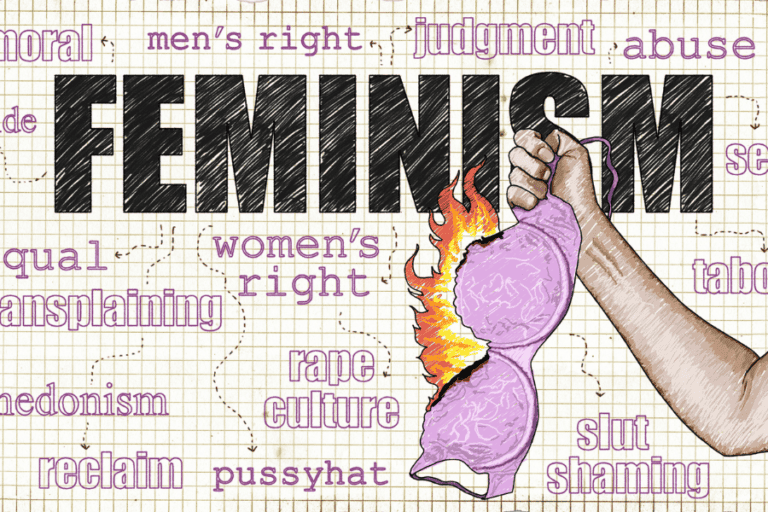
Many people believe French people are rude, however, this is not truly accurate. It is primarily due to cultural differences and misunderstandings. Stereotypes, or generalizations about an entire population, can be deceiving. Let’s look at some of the reasons why people believe the French are rude, and why this isn’t accurate:
Language Barriers
The French language itself can sound a bit more formal and straightforward than other languages. When translated, the tone may appear tough or abrupt, even if this was not the intention. The language barrier can add to the impression of rudeness.

Social Norms and Etiquette
Another cultural misconception that can contribute to the reputation of French rudeness is their social rules and etiquette. The French have their own set of social standards and etiquette, which might differ greatly from those of other countries. Foreigners may see French people as distant or cold because they do not make small talk with strangers. This is only a cultural difference, and it does not suggest that they are rude.
Comparably, French individuals may communicate more directly than other cultures. They may not sugarcoat their remarks or modify their tone, which may appear rude or unpleasant to some countries. But this is simply a cultural difference, and it does not imply that they are purposely being impolite.
Cultural misunderstandings can have a huge impact on how others perceive French rudeness. Understanding and respecting French culture and customs allows you to prevent misunderstandings and misinterpretations.
France’s National Identity
France has a long and complex past, and a lot of different things have shaped its identity as a country. Even while people from other cultures may sometimes view French pride as arrogant, the French take great pride in their language, culture, and history. Speaking French is a source of tremendous pride for those who speak it, as fluency in the language is widely recognized as one of the most elegant and sophisticated in the world.
The French have an overwhelming sense of national identity, which often leads to the idea that they are better than other civilizations. It’s crucial to clarify that this doesn’t mean that French people are inherently impolite; rather, it just means that their cultural identity can occasionally be misinterpreted by outsiders as distant or remote.
Historical Events Influence
France’s national identity has been shaped by a variety of historical events, some of which have contributed to the perception of French people as rude. In particular, the French Revolution emphasized individuality and the overthrow of existing social hierarchies. Others may find this emphasis on individualism disrespectful or self-serving.
France has a lengthy history of military conquest and colonization, which has fostered a sense of pride and dominance among some French citizens. This pride can come out as snobbery or rudeness to others.
It is important to approach every cultural stereotype with an open mind and a desire to learn the subtleties of a specific culture. Building connections and establishing bridges can assist in eliminating misconceptions and promote greater understanding among people from various backgrounds.
Tourism and Perception
Tourism-related interactions frequently contribute to the notion that French people are rude. But it’s important to clarify this myth and comprehend the relevant circumstances.
Some French people could come out as impolite to foreigners because of the way some tourists behave. For example, some visitors could be disrespectful of French culture and customs. Locals may find this behavior irritating since it makes them feel as though their way of life is not valued.

It’s important to remember that as a guest in a different country, you must respect local customs and culture. This includes being mindful of your behavior in public places, speaking in a nice tone, and following local norms and regulations.
Paris Syndrome
French people may appear unpleasant to outsiders at times due to a phenomenon known as “Paris Syndrome.” This happens when tourists are disappointed or surprised when Paris does not match their expectations. It could be due to language barriers, cultural changes, or simply having unrealistic expectations.
Keep in mind that Paris is a bustling city with its own unique culture. Even if it isn’t exactly what you expected, it’s a great and interesting destination to visit. If you arrive with an open mind and a desire to learn, your time in the City of Lights may be very entertaining.
The Politeness Debate
Politeness is a widely discussed topic among the French. Some people consider the French to be extremely unpleasant, while others believe they are simply misunderstood. Let’s look closely at this debate.
French Communication Style
French communication is more direct than in some other cultures. People frequently communicate their thoughts straightforwardly, expecting others to do the same. This directness can be interpreted as aggressive rather than harsh.
Politeness is highly prized in French society. Simple courtesy like saying “please” (s’il vous plaît) and “thank you” (merci) are essential. Greetings are also important, and a polite “Bonjour” (good morning) is usually anticipated before beginning a conversation.
Misinterpretation of Manners
Travelers occasionally mistake French manners, which have been rooted in the nation’s rich historical and cultural traditions. Particularly in the first meetings, people from France may come out as unwilling or reserved. This mannerism may be misconstrued as coldness, yet it represents a cultural preference for privacy.
Additionally, the reserved or aloof nature of French encounters might be attributed to their formality, particularly in professional and public settings. However, for most of them, politeness comes first, and formal titles and greetings are typically used until a more casual relationship is formed.
The politeness debate is like an ongoing talk about how people should be polite, considering how different cultures and backgrounds influence this. It helps us understand what’s expected in different situations. To avoid misunderstandings about French manners, it’s helpful to stay open-minded, be aware of cultural differences, and, if you’re unsure, just ask for clarification.
Frequently Asked Questions:
1. What behaviors are typically seen as disrespectful in French culture?
Some actions could be viewed as disrespectful in French culture. It might be considered unfriendly to disregard customary social graces, talk loudly in public, or interrupt someone in the middle of a conversation. Furthermore, it could be considered disrespectful to converse with your hands in your pockets, being late frequently, or criticize French norms without regard for the sensitivity of your remarks.
2. How can one navigate social interactions smoothly in France?
It’s important to recognize and honor local customs in order to engage in social interactions in France with ease. Before striking up a discussion, begin by extending a courteous “Bonjour” or “Bonsoir” to others. Recognize social cues and respect personal space since French people place a high importance on formality in communication.

3. Are there specific phrases or topics to avoid when speaking with someone from France?
To guarantee polite communication, it’s best to steer clear of specific words or subjects when speaking with a French person. Stay away from criticizing French customs, food, or culture as this could be interpreted as impolite. Furthermore, it is best to avoid talking about politics, religion, and money as these topics are confidential.
4. What are some misconceptions about French etiquette that might cause misunderstandings?
The idea that French people are naturally impolite is a popular one, but the truth is that they frequently favor honest conversation. Another myth is that French people detest tourists; in reality, many of them are hospitable and value maintaining their cultural identity. There’s also a notion that French people are invariably hesitant and formal but they also like mingling and having a good time.
5. In what ways do French communication styles differ from other cultures?
One obvious distinction is that the French place more value on direct communication and frequently honestly express their ideas. Formal communication is facilitated using formal language and respect for social hierarchies, particularly in professional contexts. In addition, unless a closer relationship is established, the French place a high importance on a certain amount of formality in greetings and exchanges.
6. What tips can help tourists avoid accidental rudeness while visiting France?
By trying to become familiar with certain fundamental French terms and habits, visitors can avoid unintentionally offending French people. It’s also critical to understand French social customs, such as the value of table etiquette and appropriate greeting techniques. It’s also critical to refrain from disrespecting France or the French people and to show respect for French culture and customs.
Conclusion
In conclusion, although French people may not seem very welcoming at first, it’s important to learn about their expectations and cultural practices. The French place a great importance on politeness and respect, and they expect the same in return. Saying “Bonjour” and utilizing expressions like “s’il vous plaît” and “merci” are essential manners that demonstrate your respect for their culture.
Remember that various cultural perspectives on what constitutes politeness vary. Hence, when interacting with French people, try not to take anything personally and maintain an open mind.
Finally, not all French people are impolite. There are unpleasant people around, just as there are courteous people. Generalizing about a group of people based on a few unpleasant experiences is unfair. If you approach every encounter in France with optimism, you should have a good time.
The Role of counselling and self care
I Should Have Said Media will earn a commission after clicking links on this page at no additional cost to you. Learn more.
When you are dealing with rude people and you find it stressful, consider getting support from a professional. Talking to a counselor is a great way to work through a challenging situation, and help you find some strategies to work through the person’s behaviour.
Better Help is a great resource where you can talk to a counselor from the comfort of your own home.
Taking care of your own needs isn’t selfish, and you will feel better in the long run.








